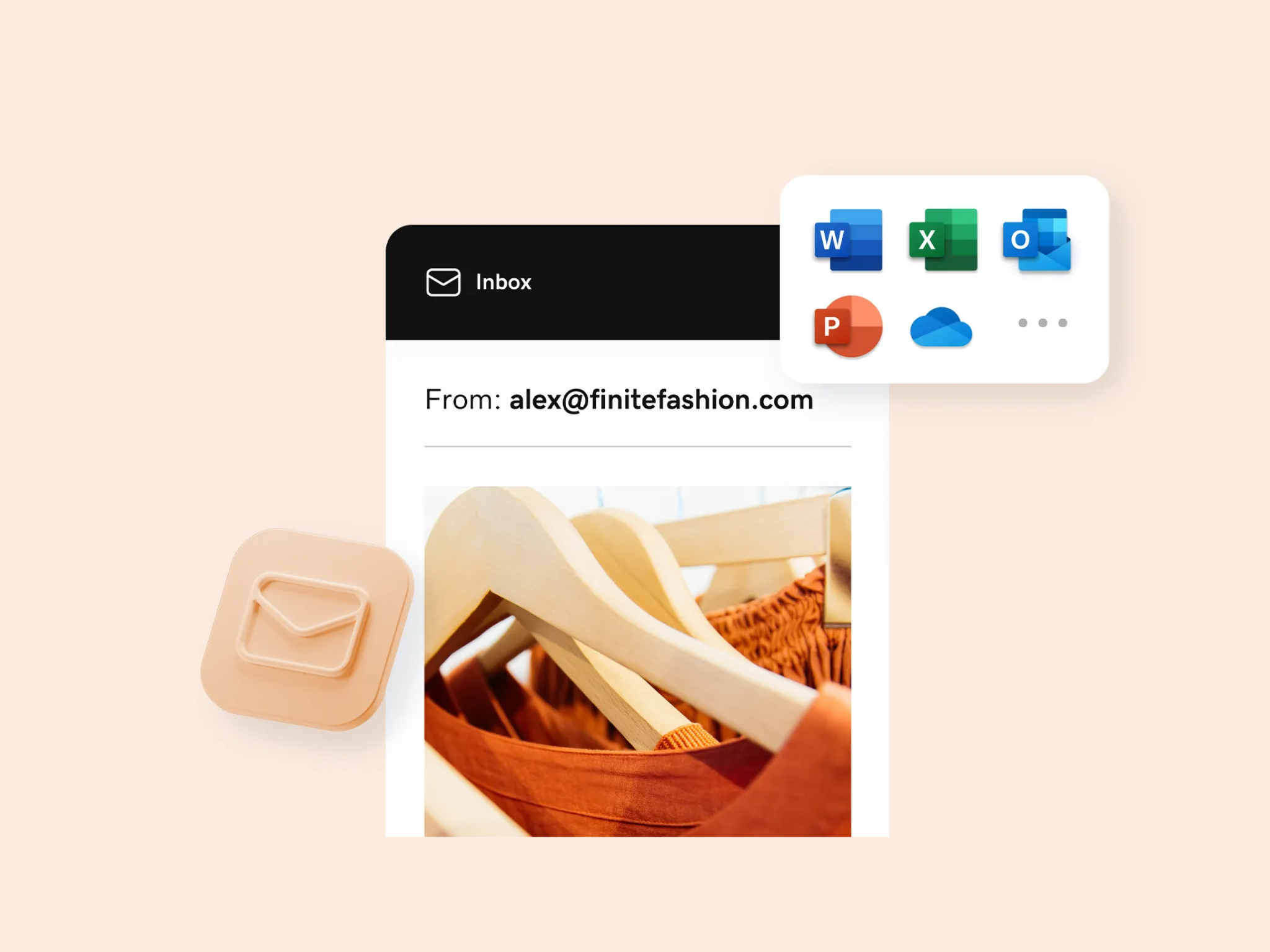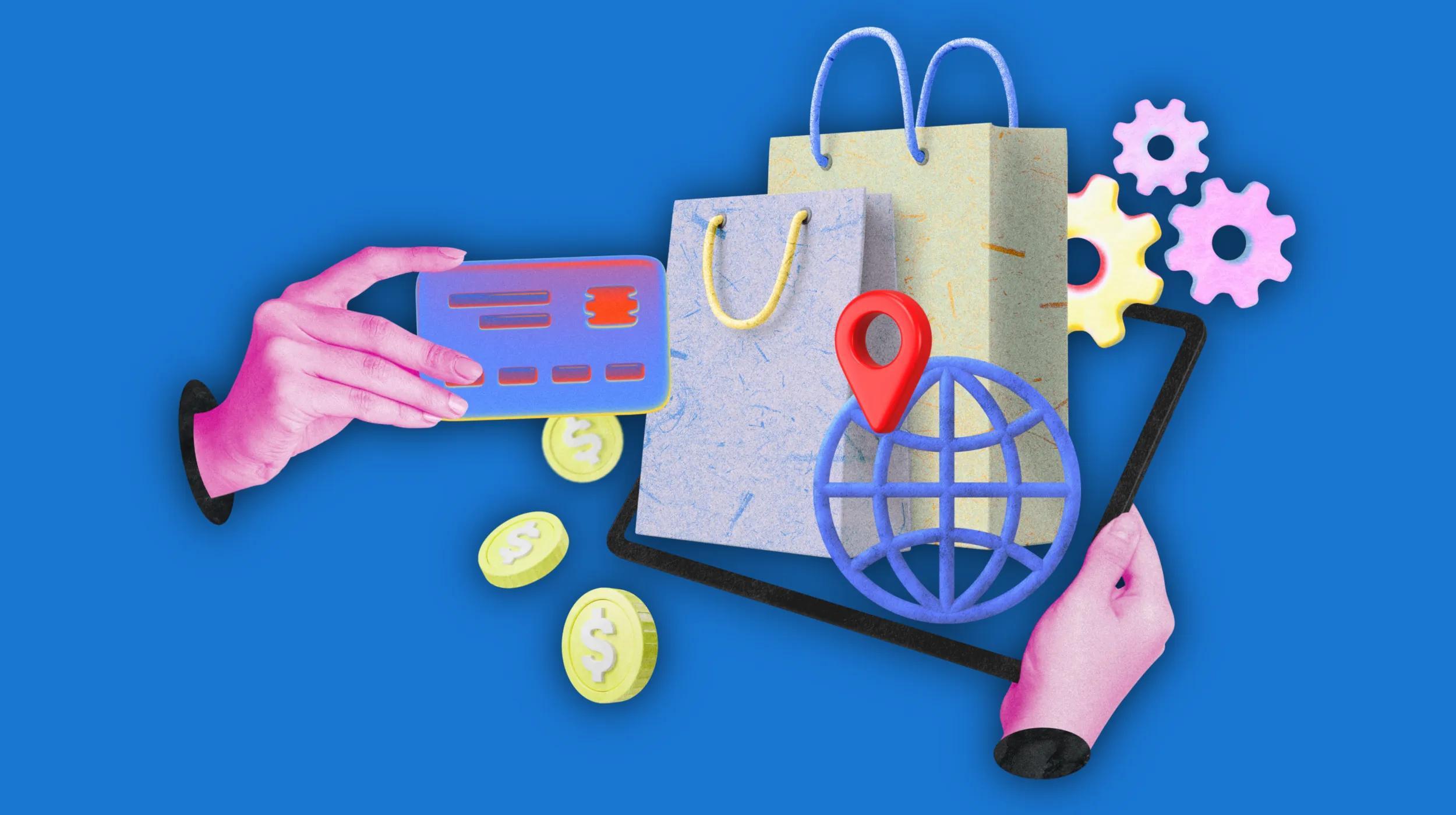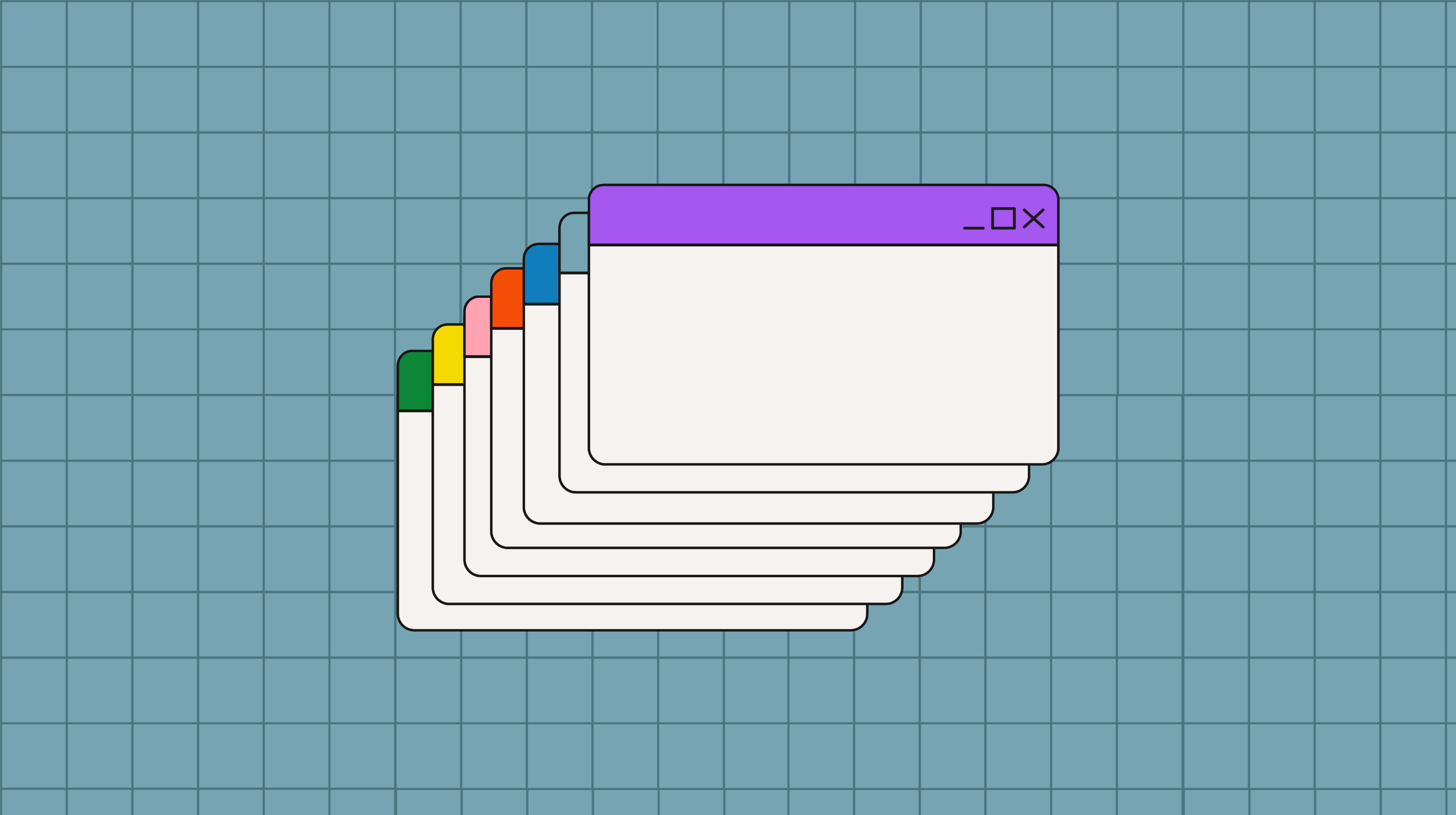Etsy is often the first marketplace crafters, artisans, and vintage sellers turn to, which is understandable. After all, the ecommerce platform was designed with those groups in mind.
However, if you’re looking for Etsy alternatives, or simply want to expand to similar channels, there are several other marketplaces to consider.
Your business needs a website.
But before we dive into some other options out there, let’s explore why you may want to sell your crafts on other sites like Etsy.
4 reasons why sellers may consider Etsy alternatives
Offering your products on different ecommerce platforms will help you stand out against other competing sellers who are limiting themselves to Etsy alone.
Using Etsy alternatives to sell your crafts gives buyers the chance to shop on the platforms that they may already be accustomed to. As a result, you’re offering a convenient shopping experience that builds more loyal relationships.
1. Sellers want to stand out from the competition
It can be challenging for Etsy sellers to differentiate themselves from competitors because even when a potential customer is on a specific product page, the platform recommends sellers who offer similar products.
For example, a shopper viewing a specific candle can simply scroll to the bottom of the product page to see “Similar items on Etsy” — listings of other sellers’ candle offerings, as illustrated below.

[Source]
So even Etsy sellers who spring for a paid promotion will still find themselves pitted against other sellers.
2. Sellers want more marketing options
Etsy sellers can’t engage in many traditional ecommerce marketing techniques.
While paid promotions are an option, the platform offers no marketing tools or Facebook remarketing. Also, sellers aren’t permitted to collect buyers’ email addresses or even communicate with customers after the completion of a sale.
3. Sellers want to expand into non-handmade items
Etsy permits only handmade products, vintage products, and craft supplies to be sold on its platform.
So sellers who want to expand into wholesale offerings — or successful Etsy users who simply outgrow the ability to hand-make every item — won’t be able to continue using Etsy. For example if you’re selling on Facebook Marketplace or if you want to expand to selling on Instagram as well, you don’t have these types of restrictions. The audience and flow is different, but you have more freedom.
4. Sellers want to diversify their marketplaces
Some Etsy sellers may wish to continue to use the marketplace, but they want to expand their reach and sell on other ecommerce platforms as well.
Selling on additional marketplaces can be a great way to increase brand awareness and product visibility. Plus, it can impact a seller’s bottom line.
7 other websites to sell your crafts
Luckily, there’s no shortage of Etsy alternatives out there for crafters, creators and vintage sellers. Trying a new platform will help you grow your brand, attain more customers, and most importantly, help you gain more revenue. So here are seven sites like Etsy to set up shop.
1. Amazon Handmade
Ecommerce giant Amazon has its own artisan marketplace that features sellers from more than 80 countries.
Being an Amazon platform, Amazon Handmade has a lot of potential for makers. And since more than 63% of shoppers begin their product searches on Amazon, customers often arrive on Amazon ready to make a purchase.

[Source]
Sellers must apply to be part of the marketplace and offer only handcrafted goods. They must also register for Amazon’s Professional selling plan, which costs $39.99 per month. However, this fee is waived for Handmade sellers.
As for costs, Amazon takes a 15% referral fee for each sale on Amazon Handmade.
2. Ruby Lane
Ruby Lane is the largest curated marketplace for antiques, vintage items, art and jewelry.
The site gives sellers access to Google Analytics data, allows them to Skype with customers, and permits them to use third-party marketing tools.

[Source]
It also sets itself apart from Etsy with its Secret Shopper Program. Shoppers make purchases, and if their experience doesn’t meet marketplace standards, Ruby Lane privately contacts the seller to provide feedback and recommendations.
There are no listing or set-up fees, but Ruby Lane charges a maintenance fee of $25 on the first of every month. But when you add at least 15 items within a month, your $25 maintenance is returned through a rebate. There’s also a service fee of 9.9% that’s capped at $250.
3. Storenvy
More than 55,000 brands sell their goods on Storenvy, a marketplace that specializes in small, independent brands.
The platform believes everything has a story — where a product comes from, who created it, and why each product is essential to the seller’s story.

[Source]
The marketplace prides itself on offering high-quality products, as its average sale price is higher than Etsy’s. The site regularly promotes its sellers’ offerings on social media, which can give listings more mileage than a paid promotion on other marketplaces.
Storenvy charges a 15% commission on sales and has no other fees.
4. aftcra
aftcra is a boutique-like platform that exclusively offers American, handcrafted items. The marketplace has a very strict definition of what constitutes a handmade item — specifically, items should be made only by hand. If you have the skills to create items like jewelry, baby blankets or woodworking, your creations will fit their bill.

[Source]
While Etsy allows ecommerce merchants from around the world to sell arts and crafts, aftcra limits its marketplace to Americans only. So as a US-based seller, you’re fortunate to be competing against a smaller pool of sellers.
There are no fees to set up an aftcra store and list items, but there’s a 7% transaction fee when an item sells.
And overall, when it comes to expenses, aftcra’s pricing is far less than Etsy’s.
5. Folksy
Described as “the UK’s biggest online craft fair,” Folksy is essentially Britain’s version of aftcra — designed specifically for the country’s artisans. As a plus for the particular European sellers, Folksy is less saturated than Etsy — making it easier for those who are brand new to selling crafts online.

[Source]
Like Etsy, Folksy charges fees for listing items for sale on its platform. But with Folksy, the first three items listed are free. The UK platform charges commission fees (6% + VAT sales commission), while Stripe and PayPal charge them transaction fees.
6. Spoonflower
Spoonflower is a global community of artists that sell decor, bedding and other home furnishings. What sets them apart from Etsy? Spoonflower specializes in custom fabrics.

[Source]
To get a product that is one of a kind, shoppers can first choose a design from an existing artist on the platform or upload one of their own. Secondly, they can order the custom fabric on any item — like a pillowcase or duvet cover. And lastly, Spoonflower prints and ships.
Sellers simply upload their designs, which are then sold and printed on fabric, wallpaper or gift wrap.
Spoonflower sellers earn a base commission of 10% of the retail price of their design, regardless of discounts or promotions.
7. iCraft Gifts
This Canada-based marketplace invites sellers from across the globe to list crafts and original art for sale.
Unlike Etsy and many of the Etsy alternatives listed here, iCraft Gifts doesn’t permit the sale of vintage items or craft supplies.

[Source]
The marketplace charges a one-time, non-refundable $25 registration fee and offers subscription-fee packages that range in price from $10 per month to $15 per month. There are no listing, transaction, or commission fees.
Create your own site using GoDaddy
The Etsy alternatives detailed above aren’t your only options for selling your crafts, handmade goods, and vintage items.
Rely on GoDaddy to buy a domain right now and create your own shopping platform. Our website builder is free and simple — allowing you to be set up within minutes. In no time, you’ll be able to launch your own store exclusively for your own products.
Once you have your products listed on multiple marketplaces in addition to your own platform, use Marketplaces & Social to help you run a smoother business. Through its management, you can sell on multiple marketplaces, quickly list items, and sync your inventory across warehouses with ease.
*AI-assisted full website including all of the premium features like online store, appointment scheduling, and marketplace selling to name a few, requires paid subscription.
Social media marketing calendar available with GoDaddy Airo, some features will require paid subscription.
Professional Email through Microsoft Office 365 30-day free trial with an option to renew into a paid subscription beyond the promotional period.
While the LLC starter plan is free, there are likely some state and/or local filing fees associated with your filing which will be determined during the filing process.







